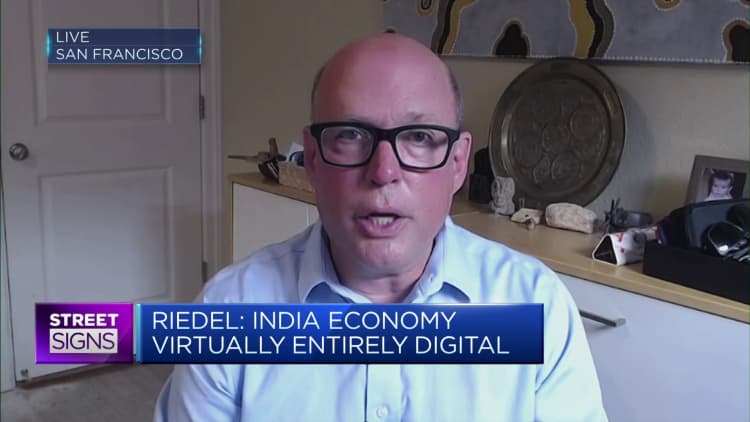Asia-Pacific markets were mixed on the final trading day of the first half of the year.
The Dow Jones Industrial Average rose, lifted by shares of large banks jumping after passing the Federal Reserve's annual stress test. A revised U.S. gross domestic product print also helped lift investor sentiment, alleviating recession fears on Wall Street.
Investors will look ahead to the latest data on personal consumption expenditures, the Federal Reserve's favored inflation gauge.
Mainland China markets were higher: The Shanghai Composite gained 0.62% to close at 3,202.06 and the Shenzhen Component rose 1% to close at 11,026.58.
Factory activity data in China contracted for a third straight month, according to the National Bureau of Statistics release. Hong Kong's Hang Seng index was flat in its final hour of trade.
Japanese stocks fell as investors digested Tokyo's core consumer price index, which remained at levels above the central bank's target for thirteen straight months.
The Nikkei 225 fell 0.14% to 33,189.04 and the Topix slid 0.33% to 2,288.60. In South Korea, the Kospi rose 0.56% to close at 2,564.28. Australia's S&P/ASX 200 gained 0.12% to end its session at 7,203.3.
Overnight on Wall Street, the Dow rose 269.76 points, or 0.8% led by major banks. JPMorgan Chase and Goldman Sachs each rose more than 3%, while Wells Fargo advanced 4.5%.
The S&P 500 added 0.45% to end at 4,396.44, while the tech-heavy Nasdaq Composite closed flat at 13,591.33.
— CNBC's Samantha Subin, Yun Li contributed to this report





